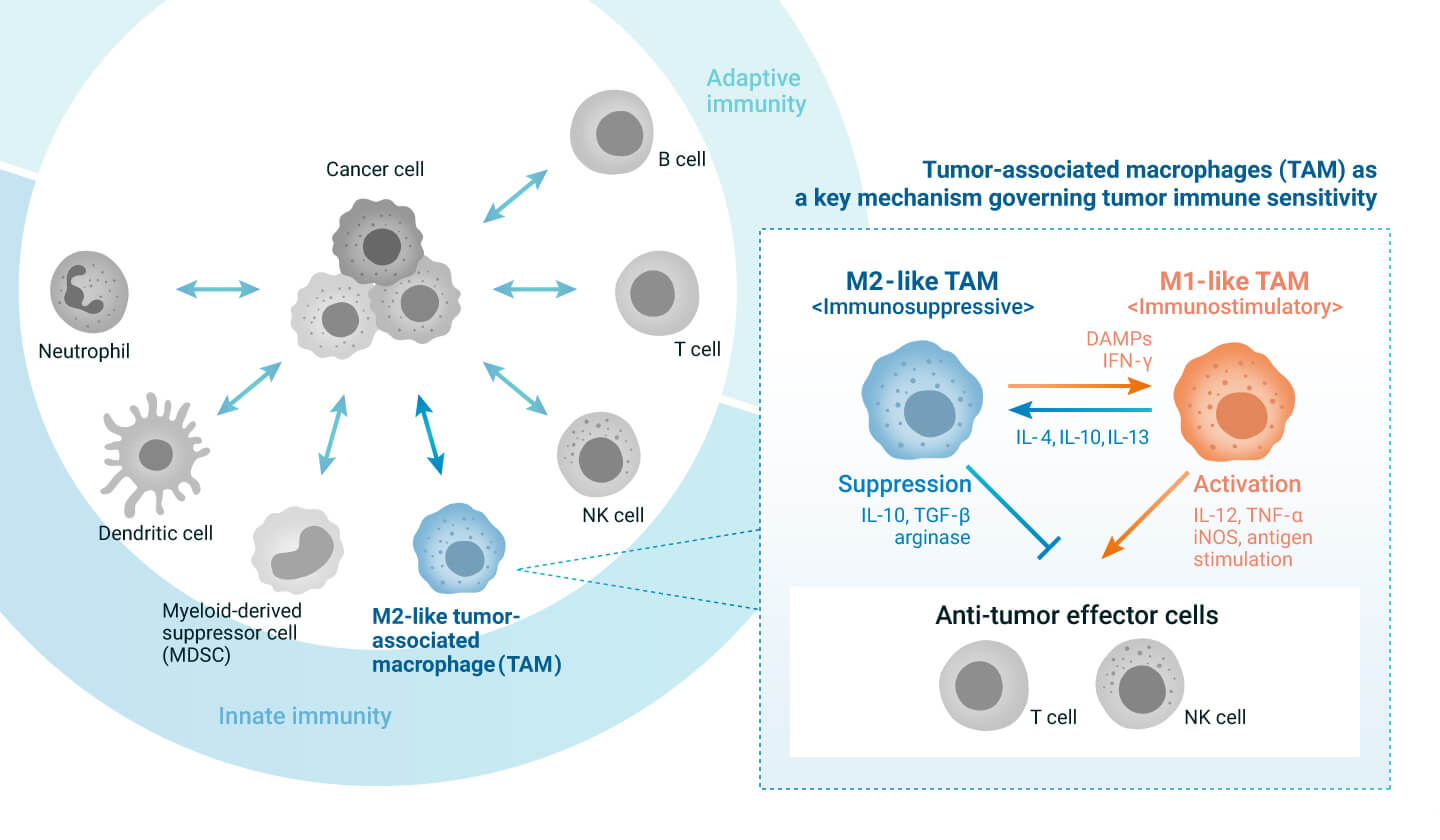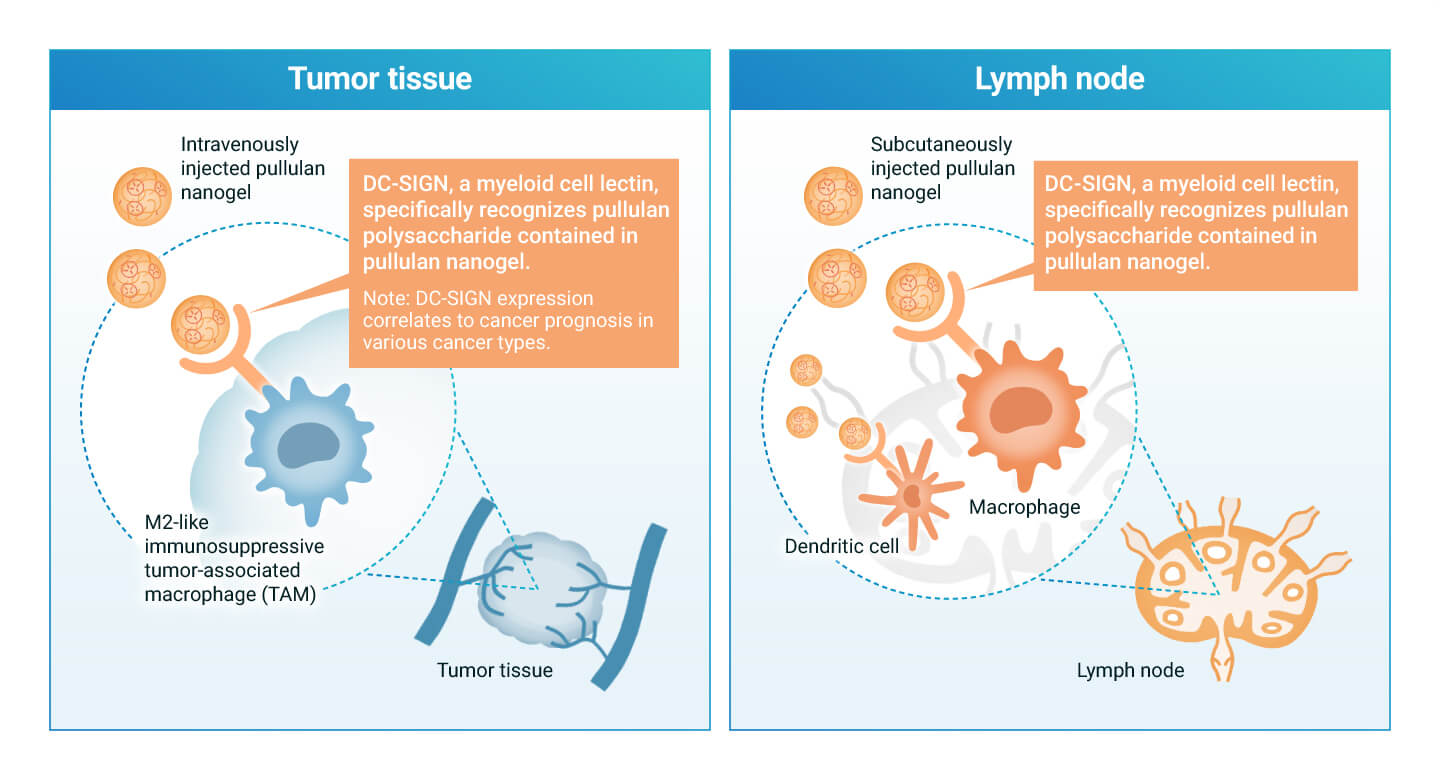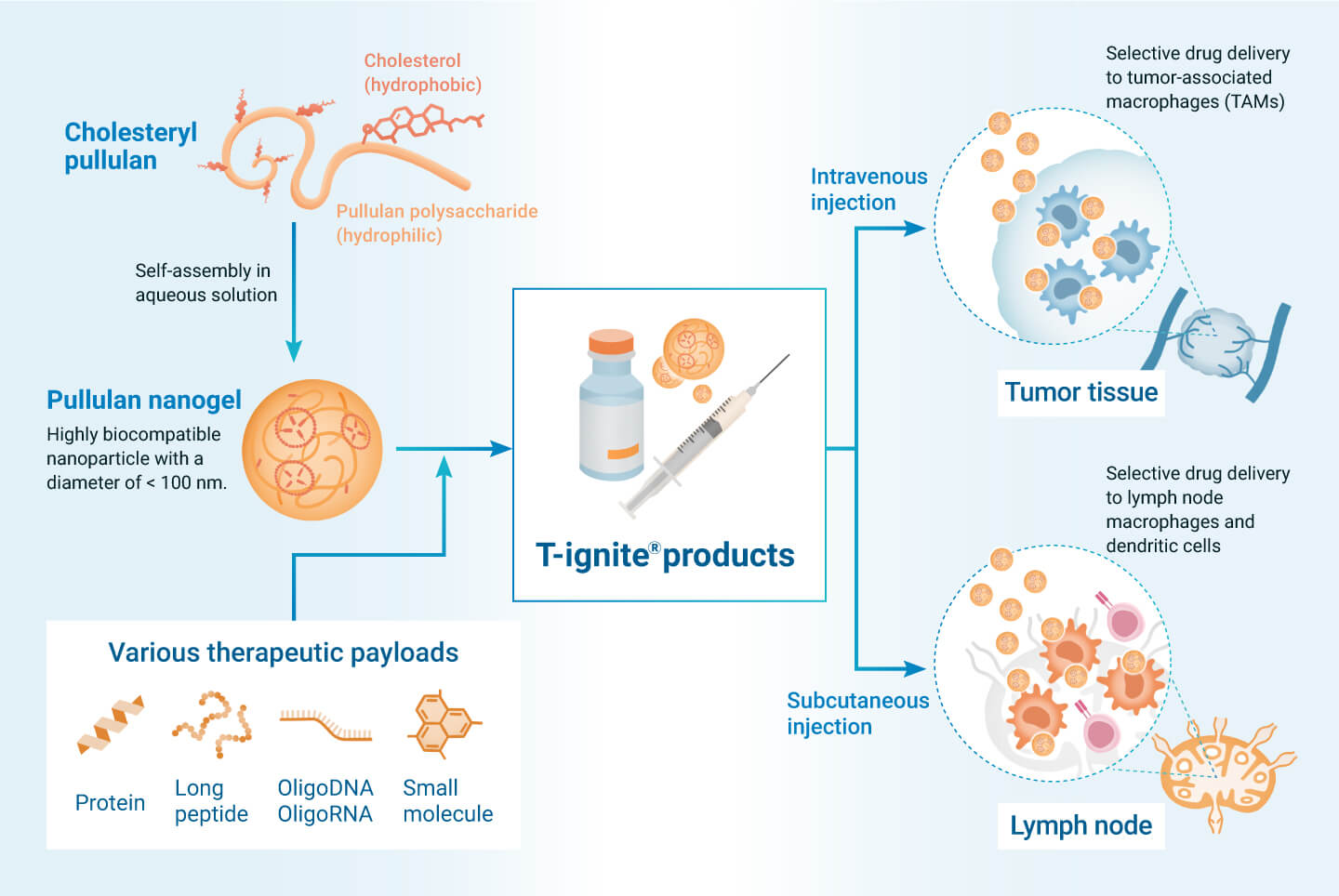Tumor-Associated Macrophage Are a Key Drug Target for Cancer Immunotherapy
We are focusing on elucidating the causes of cold tumor and developing its treatments. Recent studies have revealed that one of the main causes of cold tumor is the difference in tumor-associated macrophages, immune cells that exist in cancer tissues. Tumor-associated macrophages are capable of ingesting cancer cells, transmitting information about cancer cells to T cells, and supporting the function of T cells. However, in cold tumors, tumor-associated M2-like immunosuppressive macrophages do not support T cells or rather help cancer cells by interfering with T cells. It has become clear that therapeutic effects can be achieved by either eliminating macrophages that are allies of cancer cells or by controlling their functions to support T cells, i.e., reprogramming to M1-like immunostimulatory macrophages. Based on these findings, tumor-associated macrophages have recently become a drug target that has attracted the most attention in the field of cancer immunotherapy.

Pullulan Nanogel Is a Novel, Macrophage-Selective Drug Delivery System
We are promoting the application of pullulan nanogel, a drug delivery system (DDS) originating from Kyoto University to cancer immunotherapy. Pullulan nanogel is a gel-like polysaccharide nanoparticle with a diameter of less than 100 nanometers (about 1/100 of a cell). They are made of glucose and cholesterol, which are harmless to the human body, and the surface of the particles is electrically neutral. When administered intravenously, pullulan nanogel has the property of accumulating in cancer tissue due to its nanoparticle nature. When administered subcutaneously, they rapidly accumulate in lymph nodes rather than cancerous tissues. Interestingly, in both tissues, pullulan nanogels are always taken up by macrophages. The mechanism for this is that pullulan nanogel specifically binds to a C-type lectin DC-SIGN (CD209) specifically expressed on the certain subsets of macrophages and dendritic cells including tumor-associated macrophages (patent pending).

Next Generation Cancer Nano-Immunotherapy Using Pullulan Nanogel DDS Technology
Another feature of pullulan nanogel is that it is possible to mount various therapeutic components such as peptides, proteins, oligonucleotides, and small molecule compounds inside it. Pullulan nanogels can selectively deliver any drugs to macrophages in cancer tissues and lymph nodes, making them a very powerful, versatile drug delivery system in the development of novel cancer immunotherapies targeting macrophages. We call the nanogel loaded with various therapeutic ingredients “T-ignite®” and are developing various products as novel cancer nano-immunotherapy (Fig. 4.).

